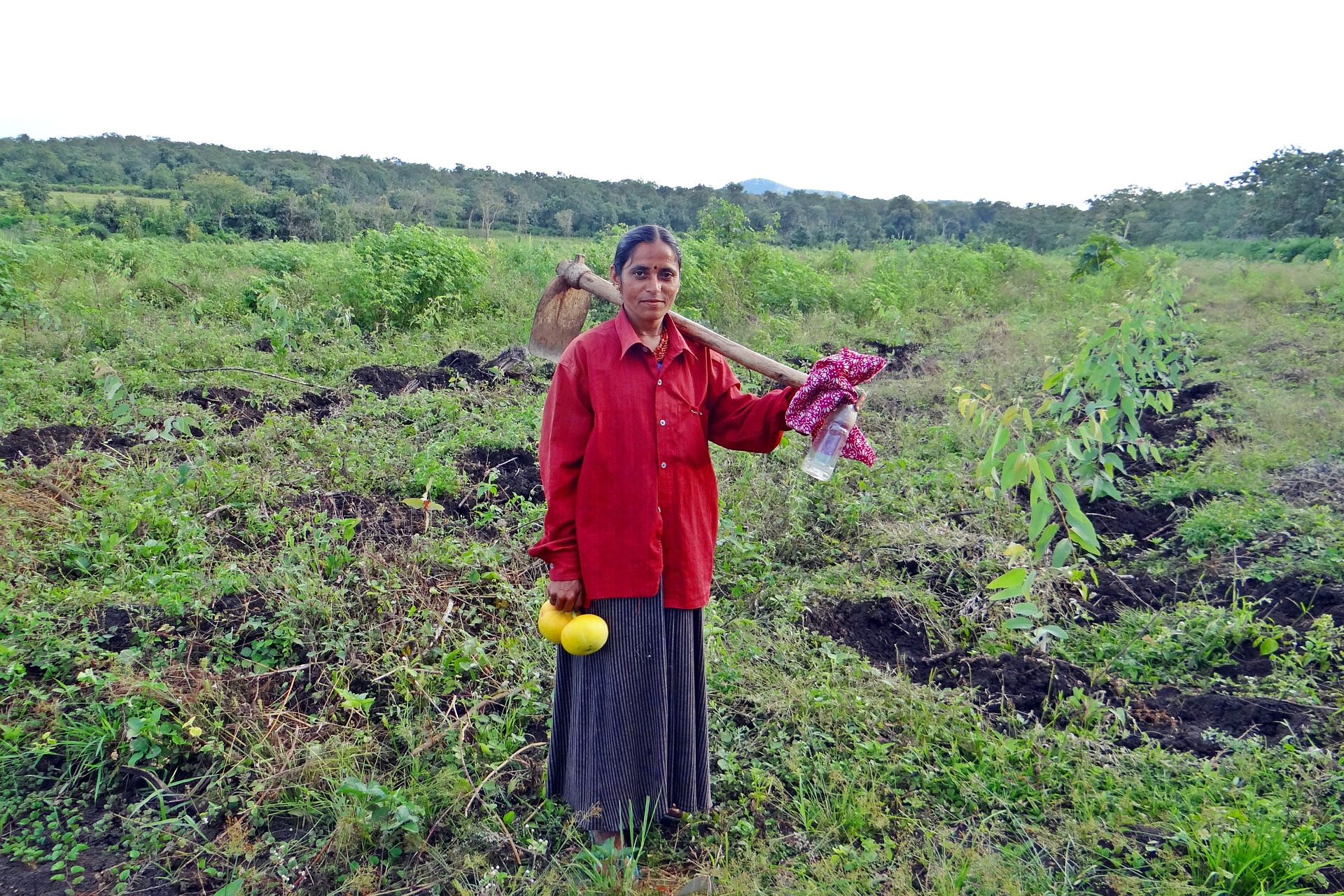Women Farmers Are Leading Northern India From Subsistence to Regeneration
The feminization of agriculture could mean healthier soil and forests, organic produce for urban markets, higher incomes for rural families
Author: Esha Chhabra | Published: October 20, 2017
Shanti Devi is racing around her farm in her sari, shooting at monkeys with a slingshot. Her tiny plot, at nearly 7,000 feet, has a glorious view across a tiered valley to the Himalayas. She grows herbs, onions and potatoes, and looks after wild apricot trees.
Devi works the farm alone — her husband works in a nearby village and her children work at jobs in Delhi. For additional income, she sells apricot shells to a local non-profit, which turns them into beauty products for markets in north India and Delhi. Her goal is simple: She wants to earn enough on the farm so her family can afford to return. Monkeys that pillage the fruit deprive her of income she badly needs.
“If they eat it all, what will I have left over?” she asks in Hindi.
New narrative
Women like Devi are changing the storyline in India’s remote rural regions, where in many places farming doesn’t produce even enough food for families. For decades, men and young people have left their small plots and migrated to India’s cities. The average farmer “is a 50-plus-year-old woman in the hills,” says Kalyan Paul, co-founder of the Pan Himalayan Grassroots Development Foundation, an organization based in Almora, Uttarakhand, the northern Indian state where Devi farms.
Those women are not letting their farms and villages slide into neglect. Rather, these unlikely entrepreneurs are leading a rural revival. Devi is part of a grassroots, women-led movement that is finding new sources of income. They are restoring the land with regenerative farming techniques that supply the country’s metro areas with organic products, medicinal plants and herbs.
Working cooperatively and newly networked with India’s urban centers and global markets, small-scale farmers, primarily women, represent a new force in Indian agriculture. Growing these women-led efforts will be an important part of meeting Sustainable Development Goal №13 for climate action (including “Strengthen resilience and adaptive capacity to climate-related hazards”) and №15 for “Life on Land” (including “promote the implementation of sustainable management of all types of forests, halt deforestation, restore degraded forests”).

